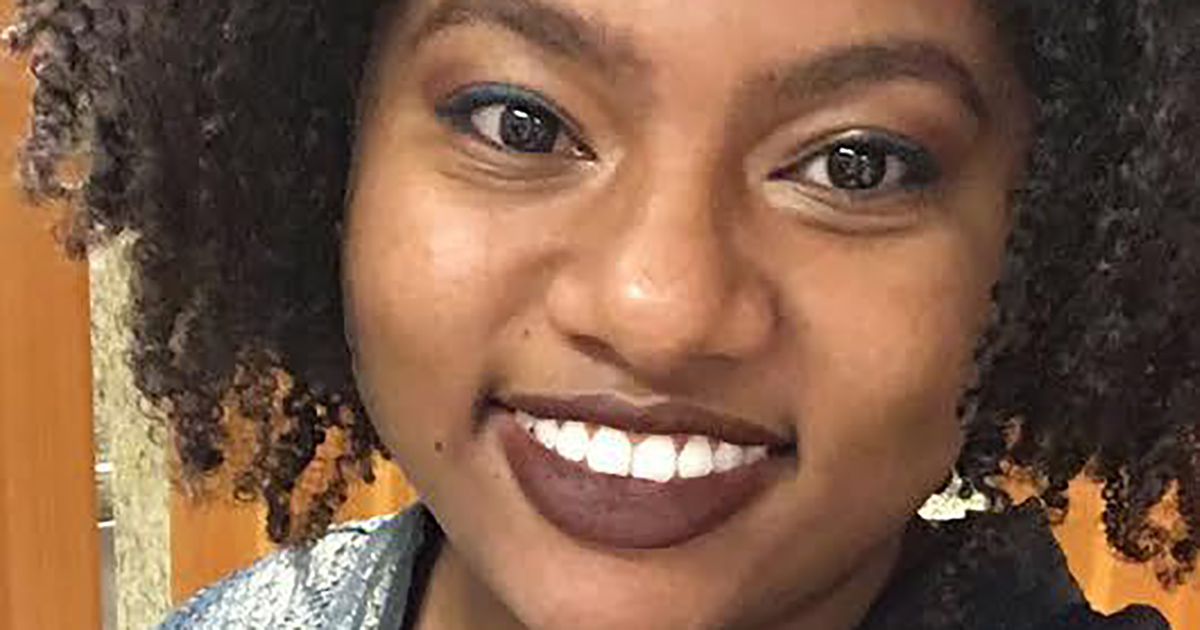The ruminations of a teenage college applicant can often sound callow. But not always. As many a college essay proves, such thoughts can be utterly inspirational. The same can be said of essays submitted by applicants to the Alumni Association LEAD Scholars Program.
In celebration of the 10th anniversary of the program, we are sharing just a few of the many essays submitted. In this 10-part series, you’ll read of the experiences of those who come from relatively sheltered backgrounds to those who have had to deal with more than their share of adversity.
In this third installment, Christina Cartwright, ’17, describes her journey toward self-acceptance that began with one simple act in high school. Now pursuing a master’s degree at Emory University, Cartwright hopes her interest in business and social justice will lead to a career advocating for better healthcare for marginalized populations.
The Big Chop
For most people, cutting their hair is not a big deal. For me, it is a different story. My hair means more to me than just aesthetics. It represents my past, my ethnicity, and my journey to self-acceptance. This is the story of my big chop.
Growing up, I never saw any black woman with natural hair, especially one portrayed in a positive light. Being a black girl in a society where white beauty is held in the highest regard, I perceived the majority of my innate features as flaws. To me, my nose was too wide and bulbous and my lips were two different colors. My eyes are black, not brown. There is a difference.
But nothing, nothing, was worse than my hair. I used to bemoan the fact that I didn’t have straight hair. My hair does not flow with the breeze, or blend in with everyone else’s, nor did it look “professional.” I focused all my self-hatred toward my hair.
Then, one day, something snapped.
Once I realized that I would have to relax my hair every six weeks for the rest of my life if I wanted it to look straight, I decided to stop hiding my true self. I transitioned my hair for 14 months, anxiously awaiting the day when I could finally trim off my relaxed ends. When that day finally came, and the deed was done, I excitedly presented my new hairstyle to my family. I felt euphoria that I had been able to take a characteristic I hated about myself and replace it with adoration and love. Sadly, my new look was met with apathy from my siblings and father and disappointment from my mother.
Looking back, I realize their responses were out of love. They cared about me and worried about how the public would react to my Afro. Despite their reaction, I fell in love with my new hair and the new me. It doesn’t mean that I don’t still experience some drawbacks: people touch it, dirty or otherwise, without my permission; some even say it is unkempt. But that’s the price of nonconformity. I wish that wearing my hair the way it naturally grows out of my head wasn’t revolutionary. Unfortunately, society hasn’t quite reached that stage yet. The way I see it, I was born with a choice. After years of trying to deny it, I finally chose to embrace what I have been given: my hair and, by extension, myself.
The LEAD Scholars Program provides scholarships to African-American, Hispanic, and Native American students who have been accepted into the U-M. Visit umalumni.com/LEAD to learn how you can support the program and, thus, help create a more diverse campus.





